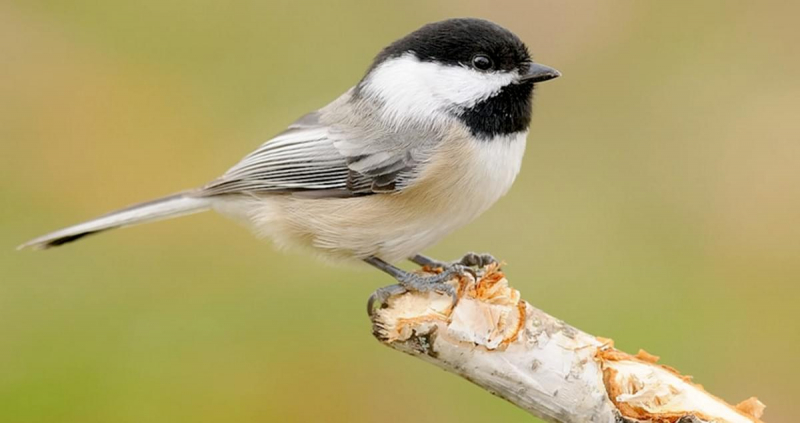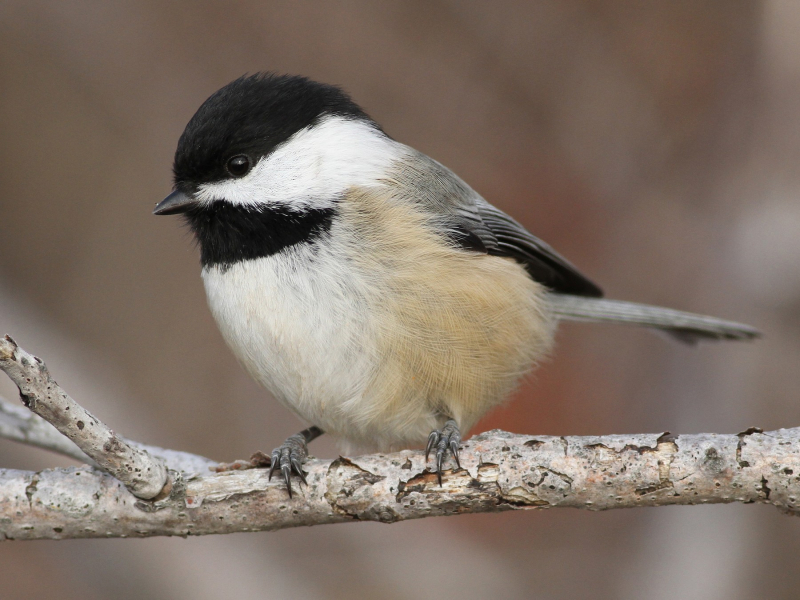Black-Capped Chickadee
The Black-Capped Chickadee (Poecile atricapillus) is a small, nonmigratory, North American songbird that lives in deciduous and mixed forests. It belongs to the Paridae tit family of passerine birds. It is the provincial bird of New Brunswick in Canada as well as the state bird of Massachusetts and Maine in the United States. It is well known for its ability to lower its body temperature during cold winter nights, its good spatial memory to relocate the caches where it stores food, and its boldness near humans (sometimes feeding from the hand).
The black-capped chickadee has a black cap and "bib" with white sides to the face. Its underparts are white, while its flanks are rusty brown. It has a gray back and a typically slate-gray tail. This bird has a long tail that is 58–63 mm in length, a long tarsus that measures 16–17 mm, and short, rounded wings that measure 8–9.5 mm in length. Its wingspan is 16–21 cm, total body length is 12–15 cm, and body weight is 9–14 g. Males and females have similar appearances, although males are significantly longer and bigger.












